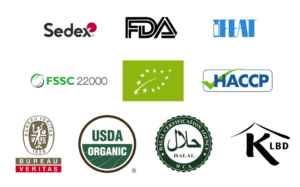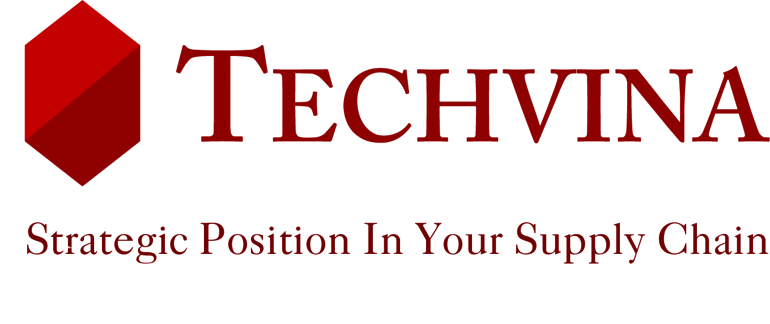Sourcing essential oils from Vietnam offers access to a diverse range of high-quality products. However, ensuring the reliability and quality of your supplier is paramount. Here are ten critical questions to guide your evaluation:
1. Assessing Product Quality and Purity
1.1. Do you provide third-party lab test results (e.g., GC-MS reports)?
Gas Chromatography-Mass Spectrometry (GC-MS) reports are essential for verifying the chemical composition and purity of essential oils. These tests detect adulteration and confirm the presence of desired compounds. Requesting these reports ensures transparency and product integrity.
1.2. What quality control measures are implemented during production?
Inquire about the supplier’s quality assurance protocols, including batch testing, contamination prevention, and adherence to Good Manufacturing Practices (GMP). Suppliers like Techvina emphasize rigorous quality control to ensure product consistency
>>See more: TECHVINA

1.3. Are your products certified organic or compliant with international standards?
Verify if the supplier holds certifications such as USDA Organic, ISO 22000, or HACCP, indicating compliance with international quality and safety standards. Techvina, for instance, holds certifications including ISO 9001, HALAL, and KOSHER.
>>>Related articles:
Unveiling the Power of Vietnamese Coumarin: A Natural Fixer for Exquisite Fragrances
2. Evaluating Sourcing and Sustainability Practices
2.1. Where are your raw materials sourced, and how is sustainability ensured?
Understanding the origin of raw materials helps assess sustainability and ethical sourcing practices. Techvina sources its raw materials from various regions in Vietnam, working closely with local farmers to ensure sustainable practices.
>> See more: https://techvina.vn/sustainability/

2.2. Do you have traceability systems for your supply chain?
Traceability ensures transparency and accountability, allowing buyers to track products from source to final delivery. Techvina implements strict control from planting, harvesting, production, and packaging to ensure product traceability.
2.3. What environmental practices are in place during cultivation and processing?
Inquire about eco-friendly practices such as organic farming, waste management, and energy-efficient processing methods to ensure environmental responsibility. Techvina is committed to sustainable sourcing and environmental protection.
3. Understanding Production Capabilities and Compliance
3.1. What is your production capacity and lead time for bulk orders?
Assessing production capabilities helps determine if the supplier can meet your volume requirements and delivery schedules. Techvina has expanded its production capacity with modern factories to meet global demands.
3.2. Are your facilities compliant with international manufacturing standards?
Confirm if the supplier’s facilities adhere to standards like ISO 22000:2018, ensuring food safety and quality management systems are in place. Techvina’s facilities comply with international standards, reflecting their commitment to quality.
3.3. Can you accommodate custom formulations or private labeling?
If you require customized products or branding, verify if the supplier offers private labeling services. Techvina provides flexible production and customer-focused development to meet specific needs
>>> See more: Techvina
4. Reviewing Documentation and Certifications
4.1. Can you provide Certificates of Analysis (COA) and Material Safety Data Sheets (MSDS)?
These documents are crucial for verifying product specifications, safety information, and compliance with regulatory requirements. Techvina provides comprehensive documentation to ensure transparency.
4.2. Do you have export experience and necessary documentation for international shipping?
Experienced exporters will have the required documentation and knowledge to navigate international shipping regulations efficiently. Techvina has exported to over 30 countries, showcasing their global experience.
4.3. Are your products compliant with international regulations (e.g., REACH, FDA)?
Ensure the supplier’s products meet the regulatory standards of your target markets to avoid legal and compliance issues. Techvina’s certifications and compliance with international standards reflect their commitment to global regulations.

5. Assessing Communication and Support
5.1. What is your response time for inquiries and support requests?
Effective communication is vital for a successful partnership. Evaluate the supplier’s responsiveness and willingness to provide support. Techvina emphasizes customer-focused development and support.
5.2. Do you offer samples for quality evaluation before bulk purchasing?
Requesting samples allows you to assess product quality firsthand. Techvina offers samples and quotations to facilitate informed decision-making.
Related article: Guide to Importing Essential Oils from Vietnam for Beginners
5.3. How do you handle complaints, returns, or quality issues?
Understanding the supplier’s policies on handling issues ensures that you can resolve problems efficiently if they arise. Techvina’s commitment to quality and customer satisfaction underscores their approach to addressing concerns.
6. Analyzing Pricing and Payment Terms
6.1. What are your pricing structures for different order volumes?
Discussing pricing tiers helps in budgeting and understanding cost-effectiveness for various order sizes. Techvina provides competitive pricing structures to accommodate different client needs.
6.2. What payment terms and methods do you offer?
Clarify payment options, terms, and any associated fees to ensure they align with your financial processes. Techvina offers flexible payment terms to support international clients. TECHVINA
6.3. Are there any additional costs (e.g., shipping, taxes, customs duties)?
Identifying all potential costs upfront prevents unexpected expenses and aids in accurate budgeting. Techvina provides transparent cost structures, including shipping and customs considerations.
By systematically addressing these questions, you can thoroughly evaluate essential oil suppliers in Vietnam, ensuring that your sourcing decisions are informed, strategic, and aligned with your quality and business objectives.
